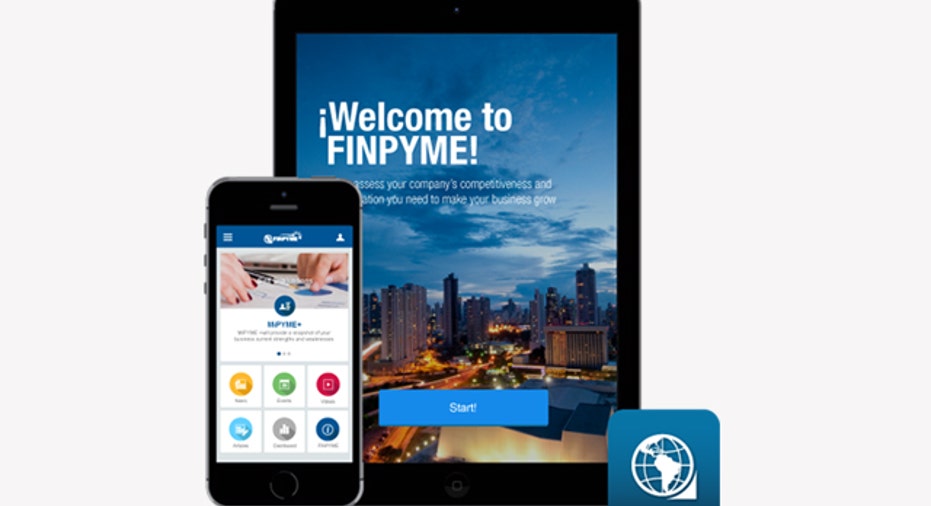IIC's New App Aims to Help SMEs in Latin America Up Competitive Edge

With the help of technology and Internet access, particularly via mobile devices, small businesses in emerging markets are finding more effective learning tools (like apps).
With that as a backdrop, the Inter-American Investment Corporation (IIC), which is the private sector branch of the Inter-American Development Bank, just launched a new app dedicated to engaging with SME clients in Latin America and the Caribbean. IIC provides financing for private businesses in Latin America and the Caribbean that specifically focuses on small and medium-size enterprises
The app, FINPYME,which became available in the Apple App Store and on Google Play this week, aims to provide technical assistance and brand advisory, among other resources, to SMEs in those regions.
“We’re really seeing this app as a sort of gateway to a much broader learning platform we’re developing to act as an advisor to these SMEs,” Greg Da Re, Chief of Strategy and Innovation at IIC, said.
Da Re says the goal is to bring relevant business knowledge and learning into users’ pockets. While he admits they are “dry topics,” he says they’re crucial in assessing market competitiveness and relative profitability. Other areas IIC helps run risk mitigation include family business governance, export readiness and energy efficiency (dubbed GREENPYME), among others.
The IIC offers workshops and seminars aimed at helping SMEs to increase their visibility and broaden potential investor base. In 2013, it moved its FINPYME Diagnostics program online to make e-learning tools available to business owners in emerging markets. Realizing the labor-intensive process of deploying people to the region to meet with SMEs to conduct the “business health checkup” was not effective, they switched gears again, this time to mobile.
According to Ruba Borno, principal at The Boston Consulting Group in San Francisco, businesses that leverage tech (cloud and mobile) are leading the pack in both revenue and job growth. Borno co-authored the BCG/Microsoft report “Ahead of the Curve” that offers a glimpse into tech and growth lessons from small businesses.
The report separated SMEs into three groups depending on their relative adoption of tech tools: Leaders, followers and laggards. According to the research, the tech-harnessing SMEs are able to reach new clients, fuel new business models and scale efficiently.
But, the data show not everyone in developing economies is tapping out their tech use, and even a slight boost in usage would greatly improve conditions. For example in Brazil, if 15% of laggards and 30% of followers performed at the level of leaders, SMEs would inject an additional $122 billion into the economy and would hire 2.5 million more workers.
“For those keeping score on job creation, this story is very exciting,” Borno said. “Job growth and increased tech adoption are correlated.”
The companies IIC is targeting with the app are smaller players in Latin America and the Caribbean, specifically companies making less than $4 million in sales, which have been open for about three years and have a solid track record. (“This particular market segment is notoriously difficult to finance,” according to Da Re.) Da Re describes the FINPYME app as a multi-car garage, with MIPYME being the first parking spot, or tool. The MIPYME tool measures market competitiveness.
After downloading the free app, business owners have access to self-assessment tools that help track results, gauge level of security and offer feedback on what business decisions can get them to the next level. The score is taken from a short diagnostic quiz of about 40 questions geared toward helping owners optimize their day-to-day operations, as well as to achieve long-term goals. The MIPYME tool also has a newsfeed that shares research and articles relevant to their region.
The IIC says they will not be storing the user data itself, but are cataloging the evaluation results for peer comparison purposes and in order to identify if there are any general weaknesses in specific regions they can address with other programs. Further, the IIC won’t be able to link back to specific users unless they elect to give their email addresses after completing the initial evaluation. (Users are only asked for email addresses if upon completing the evaluation, the outcome suggests the company prequalifies for FINPYME credit loan.)
And one recurring theme the IIC sees when dealing with these companies is family business governance and talent management.
According to Cagan Co Incorporated’s Dennis Cagan, corporate governance is one area SMEs continually trail in. Cagan suggests that SMEs craft an informal network to serve as a board of directors, which “might increase the chance of success and risk aversion.”
The next FINPYME tool will be available as an app update later this year.
“We view this as a pipeline development tool… it will reach far more people than just our financial staff could,” Da Re said.



















